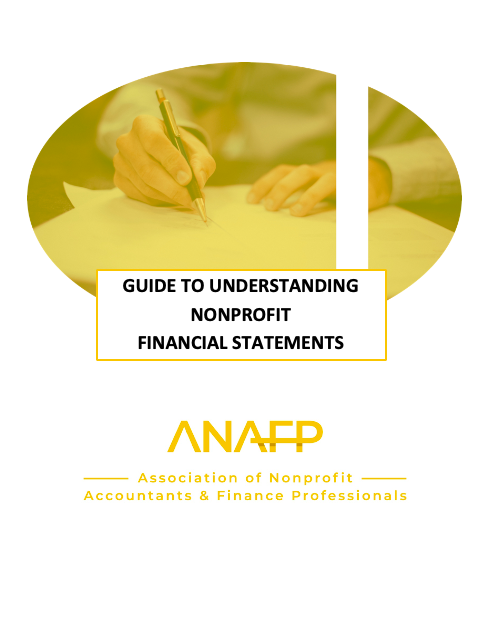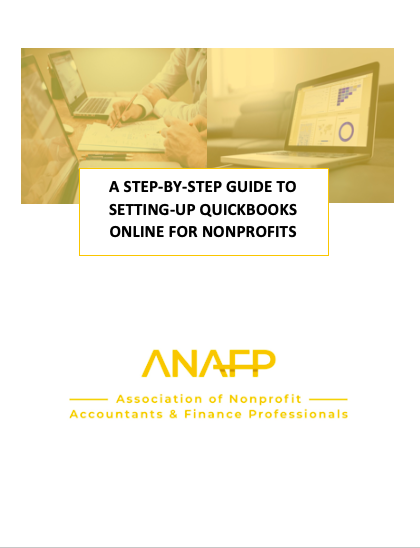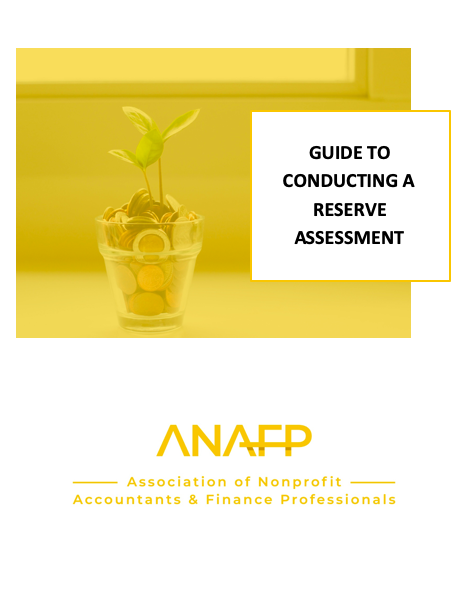- Home
- Professional Resources
- Tax and Information Returns
Tax and Information Returns Resources
Every nonprofit deserves well-educated accounting and finance staff.
Sign-up for ANAFP Publications and Emails.
Which U.S. IRS Tax Form Should Your Nonprofit File
Nonprofit organizations located in the United States are required to file an information form each year to the Internal Revenue Service (IRS). However, there are multiple forms available to nonprofits and deciding which form to file depends on the organization’s classification and whether or not the nonprofit reaches certain spending thresholds. Read more about the various forms available and learn about filing deadlines and penalties for non- and late filings. |
Structure of U.S. IRS Form 990
The U.S. IRS Form 990 contains many parts and schedules. This chart, which showcases the contents of each part and each schedule that make up Form 990, will help organizations decipher which section is applicable to them. |
| IRS Public Disclosure Rules for Nonprofits (member only) A tax-exempt nonprofit in the United States must comply with the Internal Revenue Service disclosure requirements. Learn about these requirements, how to meet the requirements, how to recover costs associated with meeting these rules, and which information nonprofits are not required to disclose. |
| IRS Form 990, Part VI, Section A: Important Definitions (member only) The IRS Form 990, Part VI, Section A, requires organizations to not only provide the number of voting members of the organization’s governing body, but organizations must also report how many of the voting members are “independent”. Learn about the four criteria that must be met in order to consider a voting member to be independent. |
| IRS Form 990, Part VII, Section A: Important Definitions The U.S. IRS Form 990, Part VII, Section A requires nonprofits to disclose the names of the organization’s officers, directors, trustees (both individuals and organizations), key employees, and highly-compensated employees. The key to completing this section depends on the organization’s understanding of how the IRS defines each of these roles as the definitions may differ from how the organization applies these terms internally. |
| Common Errors in Completing IRS Form 990 Penalties for late filing Form 990 can be hefty, but so too can fees assessed by the IRS for completing incorrect returns or submitting returns that are materially incomplete. Learn seven common errors made when completing Form 990 and which areas each nonprofit should focus before submitting their return. |
| How the IRS Revokes a Nonprofit's Tax-Exempt Status (member only) The IRS can revoke a nonprofit's tax exemption for a variety of reasons. Stay ahead of such action by learning more about the common reasons for revocation, how the process works, and how to regain tax-exempt status should your nonprofit find itself in this situation. |
| Key Differences Between a Public Charity and Public Foundation Nonprofits in the United States organized under U.S. IRS Code Section 501(c)3 may be classified as either a public charity or a private foundation. Learn the key differences between these two entities to ensure your organization is classified correctly. |
How to Account for Uncertain Tax Positions (member only) Nonprofits are required to account for uncertain, material tax positions in the accounting system and include such information in their financial statements. Determining if a nonprofit has any such positions requires a careful inventory of all tax positions and then deciding if any of these are uncertain. This article will provide an overview for conducting this analysis and explore common areas of uncertain tax positions. |
| Can Nonprofits Engage in Lobbying Activities (member only) Often times, nonprofits, in the course of their normal activities, find themselves engaging in public policy debate and, more importantly, lobbying efforts. In the United States, federal law allows nonprofits to lobby within certain limits. Knowing what constitutes lobbying under the law, and what the limits are, is key for every nonprofit to lobby both legally and safely. |
| Unrelated Business Income Tax for Nonprofits (member only) Generally, revenue generated by a nonprofit is tax-exempt; however, income generated from activities that are not consistent with a nonprofit’s tax-exempt purpose may be deemed taxable income to the organization. Learn more about the three-prong test that should be used to determine whether or not income generated by your nonprofit is considered unrelated business income (UBI) and therefore taxable. |
Participation in Political Campaigns and Lobbying Can nonprofits in the United States that are incorporated as a 501(c)3 participate in political activities on behalf of and/or in opposition to any candidate standing for public office? Learn about restrictions in place as well as how the IRS uses a facts and circumstances approach to determine if a nonprofit has violated any of these restrictions. |
| How to Calculate the IRS Public Support Test Nonprofits in the United States who function as public charities must pass the IRS public support test in order to remain classified as a public charity. Failing the test will have serious consequences as it will cause the public charity to be reclassified as a public foundation. Learn how to calculate your nonprofit's public support in order to properly file your annual tax return. |
Downloadable ANAFP Guides



